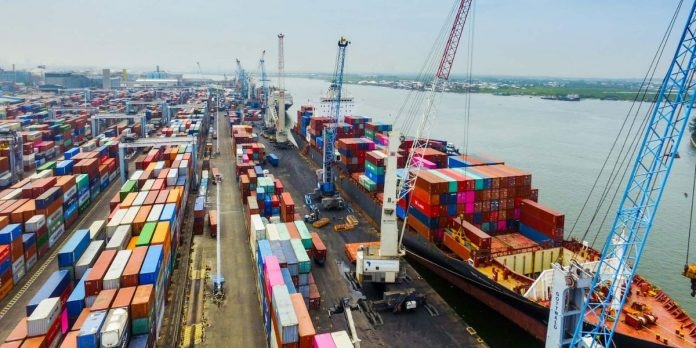Asian and Mediterranean nations emerged as the leading destinations for Nigerian crude oil exported by International Oil Companies (IOCs) as well as the Nigerian National Petroleum Company Limited (NNPCL) in April.
This is as local refiners voiced frustration over their continued exclusion from the country’s oil trade and criticised regulators for a lack of transparency.
Despite Nigeria’s efforts to ramp up production and boost revenue, export data seen by LEADERSHIP showed that the bulk of shipments were directed to foreign refiners, particularly in Asia and the Mediterranean region.
For example, LEADERSHIP checks showed that the destination for most of the 12,872 tonnes or 96, 025.12 barrels of Nigerian crude oil for export between April 9 to 29, 2025, was to refiners in South Africa, Mediterranean, Indonesia and Far East. According to the export data, Eni Agip, Total, Shell, Exmob, Shell, Oriental Energy and the NNPCL all have supply obligations to buyers in to refiners mostly in the Far East.
Meanwhile, local refiners have been sidelined, with industry stakeholders blaming regulatory opacity and inadequate support for domestic processing. Refiners argue that the lack of clear allocation processes and limited access to crude supplies are stifling Nigeria’s efforts to build a robust local refining sector.
Also, experts have continued to call for improved transparency and a more equitable distribution of crude oil among domestic refiners in line with the Domestic Crude Supply Obligations (DCSO) under the Petroleum Industry Act (PIA) 2021. In an interview with LEADERSHIP yesterday, an expert, who spoke on behalf of some local refiners on the condition of anonymity, said that Nigerian regulators in the upstream and downstream sectors need to be more transparent about the crude figures that go to Port Harcourt Refinery, Warri Refinery, and local refiners.
Several IOCs have continued to prioritise foreign oil traders over domestic refinery operators — a move analysts describe as both exploitative and damaging to the country’s energy security.
Under Sections 8(c) and 109 of the PIA, the DCSO requires producers to sell crude oil to Nigerian refineries to ensure adequate feedstock for domestic refining. However, IOCs have been accused of sidestepping this requirement by selling to foreign traders — predominantly in the Far East, Mediterranean Region and Southern Africa — who then resell the same crude to Nigeria at a premium of $5 to $6 per barrel above global benchmarks.
This practice has left local refineries effectively priced out of their own market and are now being forced to import crude oil to keep running.
Dangote’s refinery has already been sourcing crude from countries including the United States, Angola, and Algeria, as local supply remains inadequate.
“IOCs offer crude to local refineries at a significantly higher premium compared to the prices they charge in other international markets. This is nothing but a coordinated effort to undermine the survival of Nigerian refineries, which pose a threat to international refineries owned by some of these IOCs,” said Bimbo Oyarinu, a public affairs analyst. “Instead of supplying local refineries that are desperate for crude, these IOCs prefer to sell to traders who add a premium and eventually bring the same crude back to Nigeria — at a much higher cost.”
In an interview with LEADERSHIP on Tuesday, energy expert Dan Kunle explained that many cargoes are floating on the high seas due to the recent drop in global oil prices, as there now exist disagreements among crude sellers and buyers on price.
“Unfortunately, when prices fall, such disagreements often lead to the floating of cargoes on the seas, as sellers will be looking for buyers who can buy at favourable prices. Most of the vessels carrying the oil are on charter, which means costs continue to accrue while the cargo remains unsold or undelivered. At a time like this, everybody loses,” Kunle said.
Nigeria’s crude sales are mostly done in advance. The question on everyone’s mind is: Why can’t the stranded crude be channelled into domestic use since the country now has a domestic refining capacity that can accommodate more crude?
Kunle said, “Ideally, this arrangement should not take Nigeria more than one month. We should be dynamic and transparent.”
The Nigerian Upstream Petroleum Regulatory Commission (NUPRC), which is mandated to enforce the PIA, has come under scrutiny for failing to ensure compliance. While the Commission has repeatedly issued warnings to oil producers, critics argue that enforcement has been largely symbolic.
In a letter dated 2 February 2025, NUPRC chief executive, Gbenga Komolafe warned oil firms that crude designated for domestic refining must not be exported.
“The diversion of crude cargo designated for domestic refineries is a contravention of the law,” Komolafe wrote. “The Commission will henceforth disallow export permits for such cargoes.”
Despite this, sources within the oil sector say the practice has persisted unabated, raising doubts over the regulator’s ability or willingness to impose meaningful sanctions. They alleged that the Commission is more interested in pursuing clandestine deals than in enforcing compliance with the law of the land.
“The sad commentary is that these IOCs continue to exploit the system with little or no regulatory consequence,” said a senior industry analyst who declined to be named. “Local refiners are bidding, but they’re being ignored. Instead, cargoes are being routed thousands of miles away only to circle back. This isn’t just inefficient. it’s exploitative and the NUPRC is complicity in this act”
Nigeria’s refining sector has seen a wave of new investment in recent years, with modular and mega refineries — including the Dangote Petroleum Refinery — aiming to cut the nation’s dependence on imported fuels. Yet many of these facilities are unable to source local crude, threatening to derail billions of dollars in investment.
The Crude Oil Refinery-owners Association of Nigeria (CORAN) has repeatedly criticised the regulatory regime for failing to allocate sufficient crude to local refineries. The group argues that preference is still given to the issuance of fuel import licences over supporting domestic refining.
CORAN’s national publicity secretary, Eche Idoko, recently disclosed that crude supply shortages have stalled the progress of at least seven refineries.
“The major challenge is availability of crude,” said Idoko. “Until recently, Nigeria was not even meeting its OPEC production quota. For refineries to reach Final Investment Decision (FID) stages, they need guaranteed feedstock. The situation right now is not helping our case.”
He added that refineries such as the Edo Refinery, which plans to expand to 30,000 barrels per day, are now in talks with US-based crude suppliers. Only a few, like Walter Smith Refinery and Aradel Energy, which operate on their own marginal fields, are able to refine intermittently.
“Other modular refineries have not refined a single litre in the last six to eight months,” Idoko lamented.





